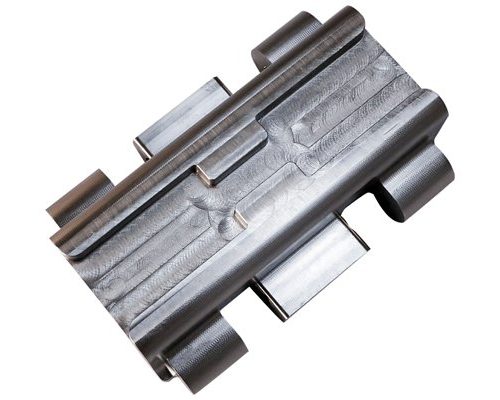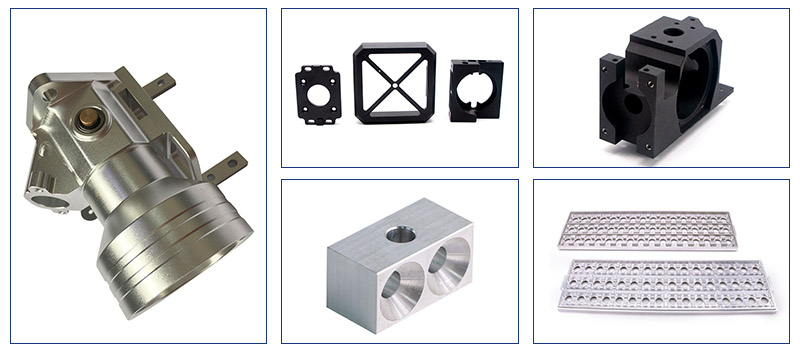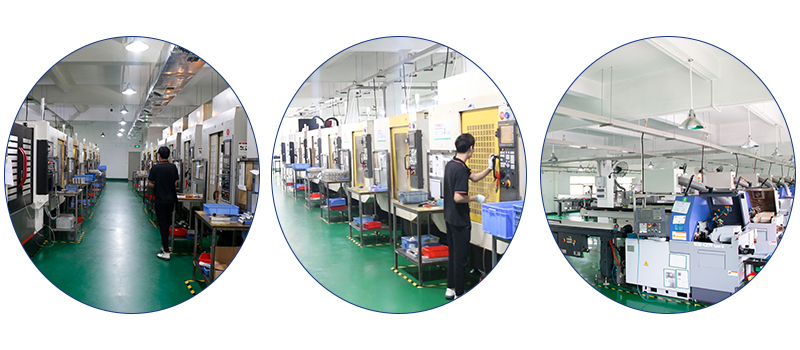When it comes to CNC machining, choosing the right material is crucial to ensure that the final product meets your strength, durability, and performance requirements. Two of the most popular materials in CNC machining are Titanium Ti-6Al-4V and Stainless Steel 304. But how do these materials compare in terms of strength and other mechanical properties?
As an industry expert at YL-Machining, I’ve worked with both materials extensively, and today I’ll take you through a detailed comparison of Titanium Ti-6Al-4V and Stainless Steel 304 in the context of CNC machining. By the end of this article, you’ll have a clear understanding of which material suits your needs best, whether you are designing aerospace components, medical devices, or high-performance automotive parts.
Understanding Titanium Ti-6Al-4V and Stainless Steel 304
Before diving into the comparison, it’s essential to understand the properties of the two materials.
What is Titanium Ti-6Al-4V?
Titanium Ti-6Al-4V, also known as Grade 5 Titanium, is an alloy made of 90% titanium, 6% aluminum, and 4% vanadium. This combination makes it one of the most popular and widely used titanium alloys for CNC machining due to its excellent strength-to-weight ratio and corrosion resistance.
Key Features of Titanium Ti-6Al-4V:
- Strength: Known for its impressive tensile strength, which typically ranges from 900 MPa to 1,100 MPa.
- Weight: Titanium is lighter than steel, making it ideal for aerospace and high-performance applications.
- Corrosion Resistance: Highly resistant to corrosion, even in extreme environments such as saltwater.
- Heat Resistance: Can withstand high temperatures without losing its strength, making it suitable for high-performance applications.
What is Stainless Steel 304?
Stainless Steel 304, often referred to as 18-8 Stainless Steel due to its composition of 18% chromium and 8% nickel, is a versatile and widely used alloy. It is renowned for its high resistance to oxidation and corrosion, making it an excellent choice for a variety of applications.
Key Features of Stainless Steel 304:
- Strength: Tensile strength typically ranges from 520 MPa to 700 MPa.
- Durability: Known for its toughness and durability in both high- and low-temperature environments.
- Corrosion Resistance: Excellent resistance to rust and oxidation, especially in environments that involve exposure to air, water, and mild acids.
- Malleability: It’s easier to work with in certain CNC machining processes due to its flexibility.
CNC Machining Strength Comparison: Titanium Ti-6Al-4V vs Stainless Steel 304
Now that we understand the basic properties of both materials, let’s delve into how Titanium Ti-6Al-4V and Stainless Steel 304 stack up in terms of strength and performance when used in CNC machining.
1. Tensile Strength
The tensile strength of a material indicates its ability to withstand tension (stretching) without breaking. This is one of the most crucial factors when selecting a material for CNC machining, especially in industries such as aerospace or automotive where parts are subjected to high stresses.
- Titanium Ti-6Al-4V has a higher tensile strength, generally ranging from 900 MPa to 1,100 MPa, making it significantly stronger than Stainless Steel 304, which has a tensile strength of around 520 MPa to 700 MPa.
This higher tensile strength means that Titanium Ti-6Al-4V can withstand more force before failure, making it an ideal choice for applications where strength is a critical factor, such as in aerospace components, medical implants, and high-performance engine parts.
2. Yield Strength
Yield strength refers to the amount of stress a material can withstand before it starts to deform permanently. In this case, Titanium Ti-6Al-4V shines with a higher yield strength compared to Stainless Steel 304.
- Titanium Ti-6Al-4V has a yield strength of about 880 MPa to 1,000 MPa, while Stainless Steel 304 has a yield strength of around 215 MPa to 450 MPa.
This means that Titanium Ti-6Al-4V can endure higher stress before permanent deformation occurs, which is essential for parts subjected to dynamic loads, like turbine blades or aerospace fasteners.
3. Fatigue Strength
Fatigue strength refers to the material’s ability to withstand repeated cycles of stress without breaking. Both materials perform well in this category, but Titanium Ti-6Al-4V has a slight advantage due to its higher strength and resilience in extreme conditions.
- Titanium Ti-6Al-4V offers superior fatigue resistance, which makes it an excellent choice for critical parts in the aerospace industry, where components are exposed to high levels of cyclic stress.
- Stainless Steel 304, while still durable, is not quite as resistant to fatigue under extreme conditions as Titanium Ti-6Al-4V. However, it remains a strong candidate for many general-purpose applications.
4. Toughness and Impact Resistance
Toughness is the ability of a material to absorb energy and plastically deform without fracturing. Stainless Steel 304 generally outperforms Titanium Ti-6Al-4V in terms of toughness, as it is more ductile and has better impact resistance.
- Stainless Steel 304 is highly resistant to cracking and breaking under sudden impacts, making it a reliable option for industrial applications that involve heavy machinery or tools.
- Titanium Ti-6Al-4V, while incredibly strong, can be more brittle under certain conditions, especially at low temperatures or when exposed to high-impact stress.
Applications of Titanium Ti-6Al-4V vs Stainless Steel 304
When selecting between Titanium Ti-6Al-4V and Stainless Steel 304, it’s essential to match the material’s properties with the demands of your application.
Titanium Ti-6Al-4V Applications
- Aerospace: Aircraft parts, turbine blades, and structural components that require high strength-to-weight ratios.
- Medical Devices: Implants, prosthetics, and surgical instruments due to its biocompatibility.
- High-Performance Automotive: Engine components and exhaust systems where strength, weight, and heat resistance are critical.
Stainless Steel 304 Applications
- Food Processing and Medical Equipment: Because of its corrosion resistance and ease of cleaning.
- Architectural and Structural: In situations where impact resistance and durability are key.
- General Manufacturing: For producing fasteners, valves, and other high-strength parts for industrial applications.
Conclusion: Which Material is Better for CNC Machining?
Both Titanium Ti-6Al-4V and Stainless Steel 304 are exceptional materials for CNC machining, but the right choice depends on your specific requirements.
- If you need higher tensile strength, lightweight, and superior corrosion resistance under extreme conditions, Titanium Ti-6Al-4V is the material of choice.
- On the other hand, if you need a more cost-effective, tough, and easily machinable material with good corrosion resistance, Stainless Steel 304 may be the better option.
At YL-Machining, we specialize in CNC machining for both materials, ensuring that every component we produce is crafted to meet the highest standards of quality and performance. Whether you need Titanium Ti-6Al-4V or Stainless Steel 304, we can help you select the best material and manufacturing process to achieve your goals.
Ready to start your next CNC machining project? Contact us today for a consultation and let’s find the perfect solution for your needs!



